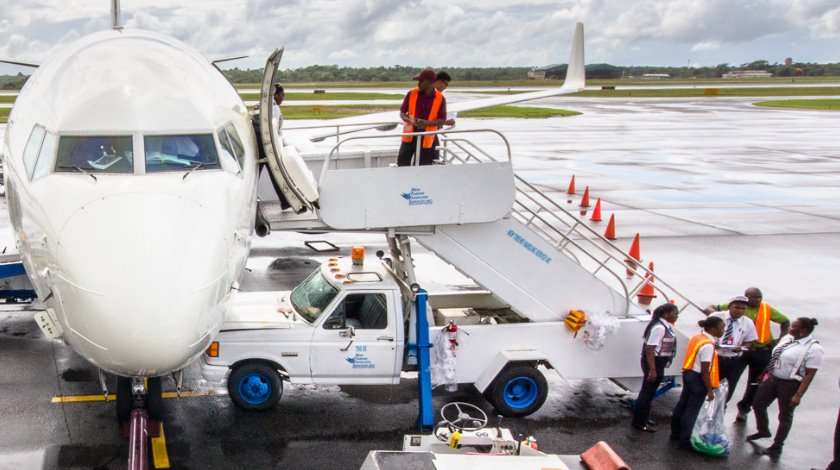Understanding the Difference Between Ground Handling and Flight Dispatch in Airline Operations

The aviation industry is a complex ecosystem that relies on the seamless coordination of various functions to ensure safe and efficient operations. Among these functions, ground handling and flight dispatch play critical roles. While they may seem similar to the untrained eye, they are distinct in their responsibilities and impact on airline operations. This article explores the differences between ground handling and flight dispatch, highlighting their unique contributions to the aviation sector.
Ground Handling: The Backbone of Airport Operations
Ground handling encompasses a wide range of services provided at the airport to support the operations of an aircraft from the time it arrives until it departs. These services are essential for the turnaround process and include:
- Passenger Services: This includes check-in, boarding, and disembarkation of passengers. Ground handlers ensure that passengers have a smooth experience from the terminal to the aircraft and vice versa.
- Baggage Handling: Managing the loading and unloading of passenger luggage, ensuring it is transported to and from the aircraft efficiently and safely.
- Aircraft Servicing: This involves refueling, catering, cleaning, and provisioning the aircraft with necessary supplies for the flight.
- Ramp Services: These services include towing, pushback, marshaling, and positioning of ground support equipment (GSE). Ramp agents are responsible for guiding aircraft to and from parking stands and ensuring the safety of the ramp area.
- Cargo Handling: Managing the loading, unloading, and transportation of cargo, including special handling for dangerous goods, perishable items, and oversized cargo.
Ground handling operations are pivotal for maintaining the schedule and safety of flights. Delays or inefficiencies in ground handling can lead to significant disruptions in the airline’s operations, affecting the overall passenger experience and operational costs.
Flight Dispatch: The Brain of Airline Operations
Flight dispatch, also known as flight operations control, involves the planning, monitoring, and control of flights from the airline’s operations center. Flight dispatchers work closely with pilots to ensure that each flight is conducted safely and efficiently. Their responsibilities include:
- Flight Planning: Dispatchers create flight plans that outline the route, altitude, speed, and fuel requirements for each flight. They consider various factors such as weather conditions, air traffic control restrictions, and aircraft performance.
- Weather Monitoring: Continuous monitoring of weather conditions along the flight route is crucial. Dispatchers provide pilots with updates on weather patterns, turbulence, and potential hazards.
- Regulatory Compliance: Ensuring that each flight adheres to aviation regulations and standards, including those set by national and international aviation authorities.
- Communication and Coordination: Dispatchers maintain constant communication with pilots, air traffic control, and other operational departments. They provide real-time support and guidance to pilots during the flight.
- Operational Decision-Making: In the event of emergencies or unexpected situations, flight dispatchers assist pilots in making critical decisions. They provide alternative routes, diversion airports, and other necessary support to ensure the safety of the flight.
Flight dispatchers act as the eyes and ears of the airline’s operations, making informed decisions that directly impact flight safety and efficiency. Their role is crucial in mitigating risks and ensuring that flights operate smoothly under various conditions.
- Fixing Aviation Surety Bonds in Nigeria
- When Safety Meets the Clock: Why Airlines Can’t Afford to Gamble
- NSIB Hosts 12th BAGAIA Commission Meeting in Abuja
- ✈️ How Commercial Airlines Boost Nigeria’s GDP
- Error Management Techniques in Flight Operations
Key Differences Between Ground Handling and Flight Dispatch
While both ground handling and flight dispatch are integral to airline operations, they differ significantly in their scope and focus:
- Location of Operations: Ground handling is primarily airport-based, dealing with the physical aspects of aircraft and passenger services. In contrast, flight dispatch operates from the airline’s operations center, focusing on the planning and monitoring of flights.
- Nature of Tasks: Ground handling involves manual and logistical tasks such as baggage handling, refueling, and aircraft servicing. Flight dispatch is more analytical, involving flight planning, weather analysis, and operational decision-making.
- Interaction with Passengers: Ground handlers directly interact with passengers, providing services that enhance the passenger experience. Flight dispatchers, however, do not typically engage with passengers but play a vital role in ensuring the overall safety and efficiency of the flight.
- Time Frame: Ground handling activities are concentrated around the aircraft’s turnaround time at the airport. Flight dispatch responsibilities span the entire duration of the flight, from pre-flight planning to post-flight analysis.
Conclusion
Understanding the distinct roles of ground handling and flight dispatch helps to appreciate the complexities involved in airline operations. Both functions are essential for ensuring that flights are safe, efficient, and punctual. Ground handlers and flight dispatchers, through their specialized skills and coordination, contribute significantly to the seamless functioning of the aviation industry. By recognizing and valuing their contributions, airlines can continue to enhance operational efficiency and passenger satisfaction in an increasingly complex and demanding environment.





0 Comments